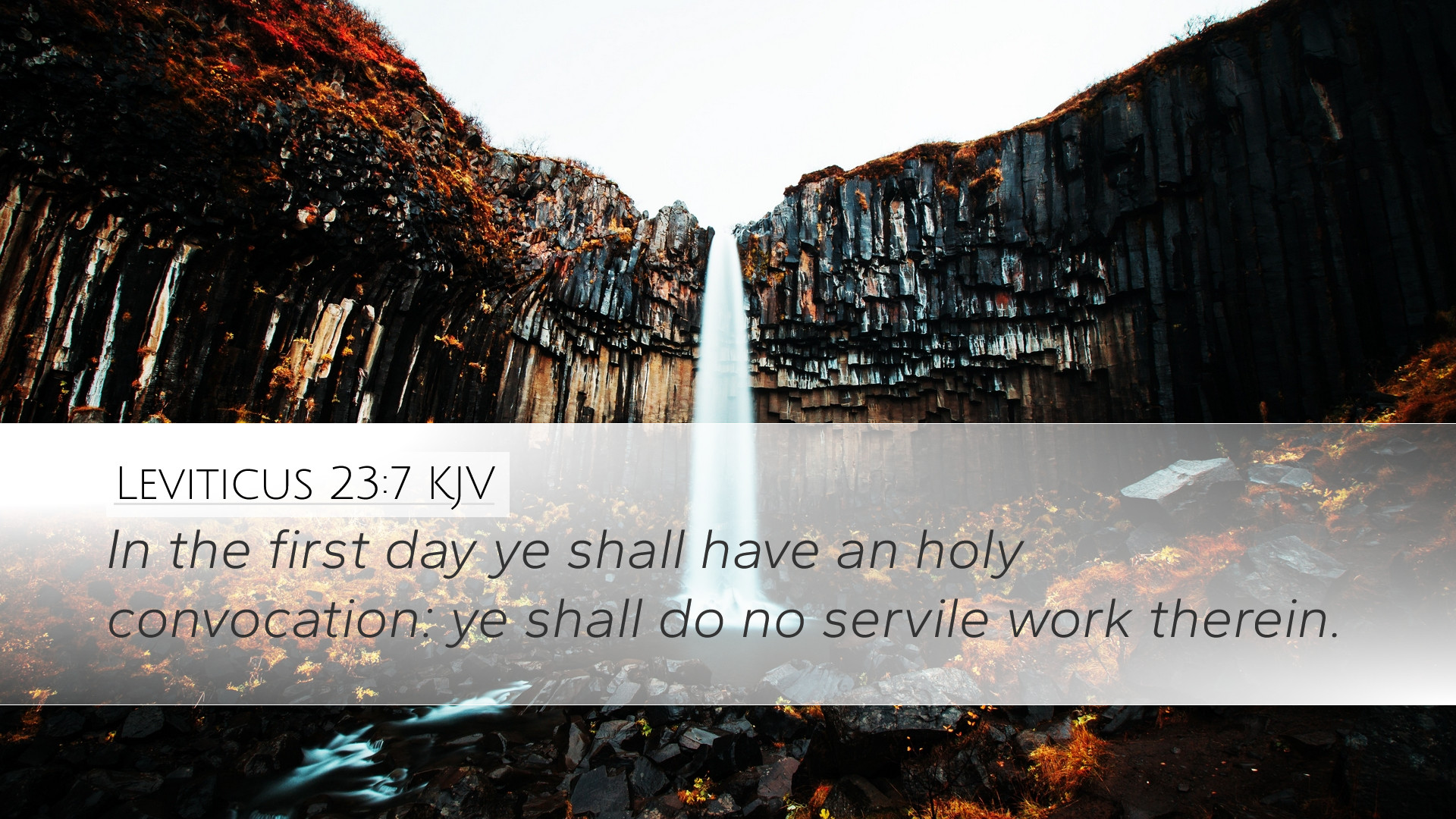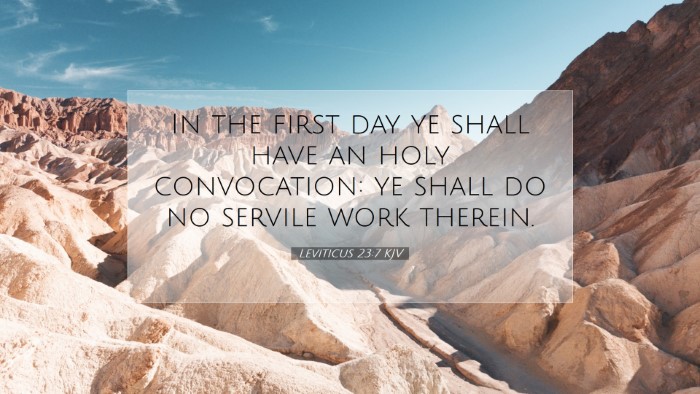Bible Commentary on Leviticus 23:7
Bible Verse: Leviticus 23:7 - "In the first day ye shall have an holy convocation: ye shall do no servile work therein."
Introduction
Leviticus 23 presents the feasts and festivals ordained by God for the Israelites, emphasizing the significance of rest and worship. In verse 7, the directive regarding the Feast of Unleavened Bread is particularly noteworthy as it sets the stage for the spiritual and practical implications of such observances. This commentary seeks to illuminate the various dimensions of this verse as drawn from the insights of Matthew Henry, Adam Clarke, and Albert Barnes.
General Observations on Leviticus 23
- Covenantal Context: Leviticus establishes the sanctity of the Israelite community’s relationship with God, and the feasts are a critical aspect of that covenant.
- Purpose of the Feasts: These festivals are designed to be reminders of God’s deliverance and provision, instilling a rhythm of worship in the life of the community.
Verse Analysis
Holy Convocation
Henry notes that the term "holy convocation" refers to an assembly of God's people set apart for sacred purposes. It’s an invitation to collective worship and remembrance of God's works in history, specifically the deliverance from Egypt.
Clarke emphasizes that the act of gathering is not merely a social event but a spiritual necessity that facilitates communal identity and shared faith.
Servile Work
The prohibition of "servile work" underscores the importance of rest. Barnes notes that this rest is not only physical but involves spiritual renewal. It reflects a trust in God’s providence, as engaging in labor on this day would distract from the sacred observance.
Henry elaborates, stating that this serves as a practical reminder that God's people are called to distinguish their time set aside for Him against the ordinary demands of daily life.
Theological Implications
God's Holiness and Our Response
Engagement in a holy convocation reflects a response to God's holiness. Clarke remarks on how adherence to these commands cultivates an awareness of the divine presence and holiness. The Israelite's participation symbolizes not just obedience but a deep acknowledgment of their unique relationship with God.
Rest and Reflection
Moreover, the idea of rest in this verse is profoundly theological. It mirrors the creation narrative where God rested, establishing a pattern for humanity (Genesis 2:2-3). The feast encourages reflection on God’s redemptive acts and opens the believer's heart to receive divine instruction.
Application for Pastors and Theologians
- Community Worship: Pastors should emphasize the value of gathering as a community in worship, echoing the call for 'holy convocations' as a vital aspect of church life.
- Value of Rest: The value of observing rest is crucial; theologians may explore how sabbatical principles apply to contemporary contexts, encouraging a rhythm of work and rest.
- Spiritual Formation: Insight into the significance of spiritual observances can enhance a community's collective identity in Christ, fostering deeper spiritual formation.
Conclusion
Leviticus 23:7 serves as a profound reminder of the importance of intentionality in worship and rest. The insights from Matthew Henry, Albert Barnes, and Adam Clarke collectively emphasize the holiness of God, the necessity of rest, and the communal aspect of worship. Reflecting on this verse offers not only a historical understanding but also practical applications for modern believers seeking to honor God through their observances.


